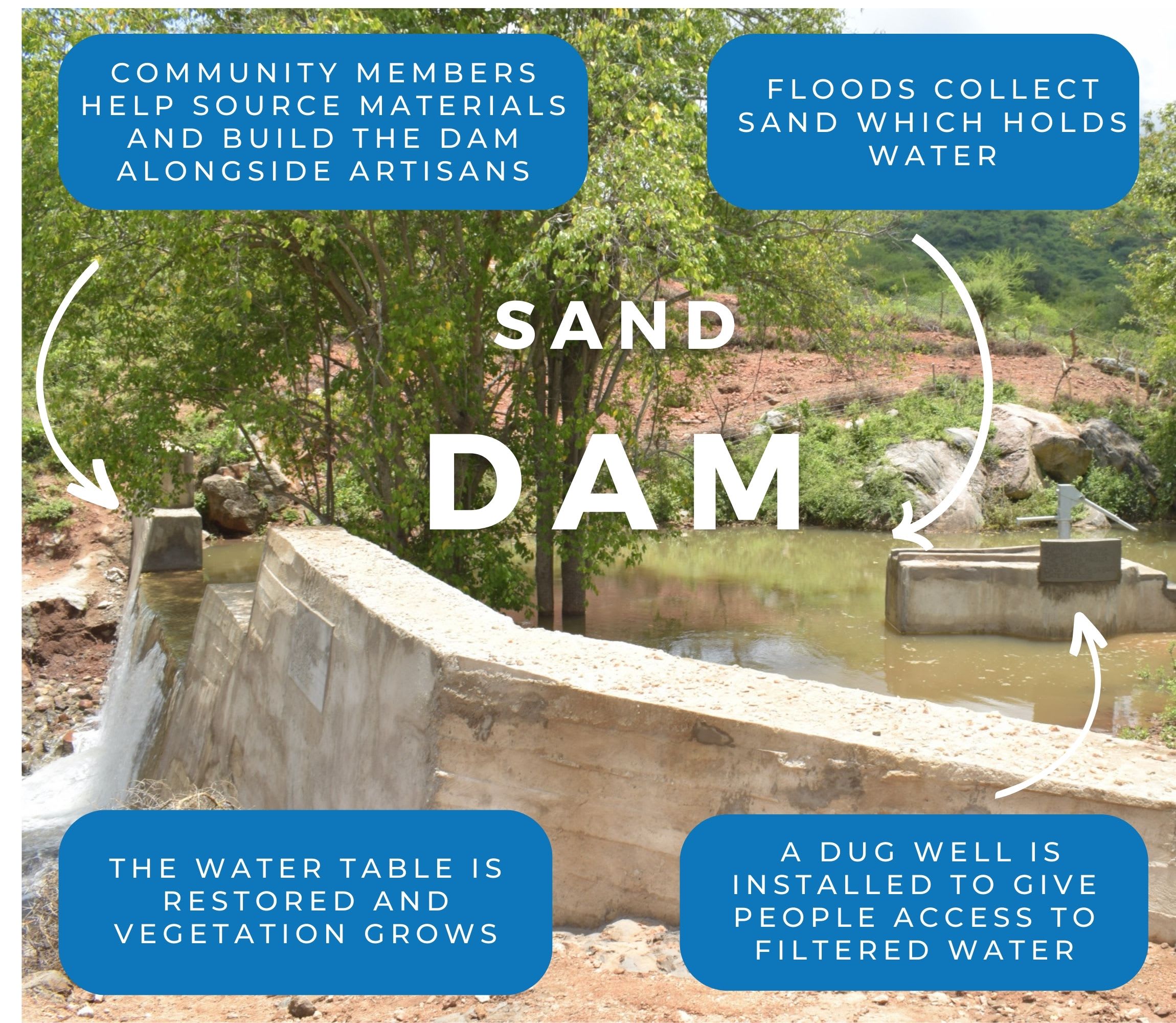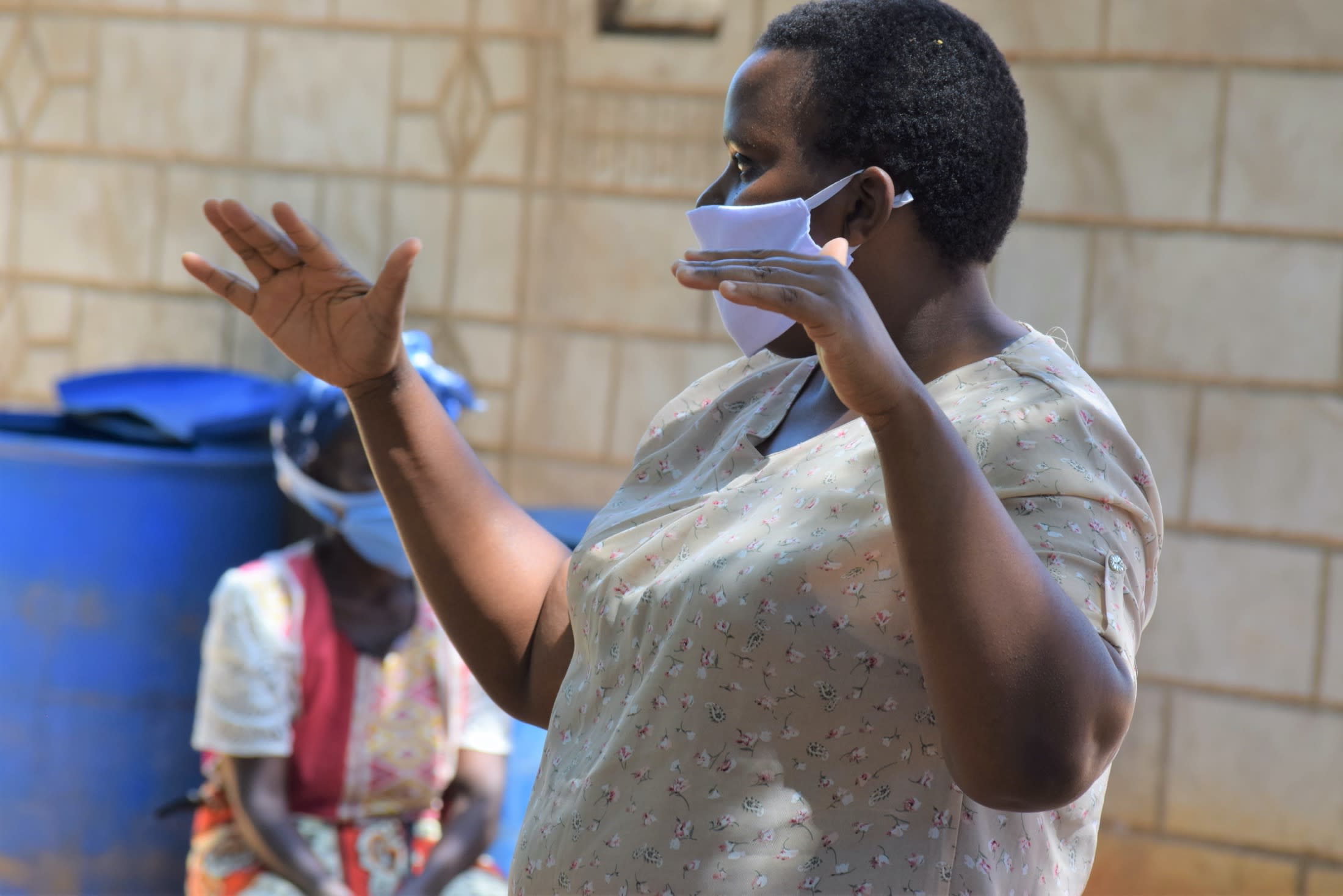The more than 1,300 people in Mukuku Community depend on open river scoop holes found along Thwake River to meet their daily water needs.
Available water is from open river scoop holes which expose the community members to potential health dangers. Since these sources are left open, livestock and other wild animals come to sate their thirst as well.
"Our community suffers from a lack of a reliable clean water source. We are always forced to fetch water from insecure sources which expose us to potential health risks because the water is open to many possible contaminants," said Kyalo Ndeto.
Many community members are required to cover long distances to and from the water source, which makes the hunt for water a tedious affair for women and children who are the ones naturally involved in the activity. Further, queues at the river channel and the long waiting time devastates those involved in the process.
"It takes more time - thus depriving people of valuable time which could be utilized in development-oriented activities," said Mr. Ndeto.
Mukuku Community is found in a silent rural setting with a relatively flat terrain which favors motorcycle transport and use of bicycles. The area is characterized by a low vegetation cover made up of indigenous tree species.
The majority of the people living in this area practice small-scale agriculture for family upkeep and sale of surplus. Locals grow maize, peas, and green grams, and have recently started growing fruit trees such as mangoes and oranges. Their close proximity to Thwake River has led to a good number of community members engaging in irrigation farming at times of the year when water is available there.
What we can do:
Our main entry point is the Mukuku Self-Help Group, which is comprised of 69 farming households that are working together to address water and food scarcity in their region. These members will be our hands and feet in both constructing water projects and spreading the message of good hygiene and sanitation to everyone.
Sand Dam
After the community picked the spot, our technical team went in and proved the viability by finding a good foundation of bedrock. Now, our engineers are busy drawing up the blueprints. We estimate the dam will be 55 meters long and 5.2 meters high.
We are unified with this community to address the water shortage. As more sand dams are built, the environment will continue to transform. As the sand dams mature and build up more sand, the water tables will rise. Along with these sand dams, hand-dug wells (check out the hand-dug well being installed next to this dam) will be installed to give locals a good, safe way to access that water.
With these projects, clean water will be brought closer to hundreds of people in Mukuku, Kenya.
Training
We will hold hygiene and sanitation training sessions with Mukuku Self-Help Group, which are also open to non-members. These will teach about important hygiene practices and daily habits to establish in the community at the personal and household levels. Taking good care of self and environment will make for a healthy community.
The majority of community members have latrines, a kitchen and clotheslines which presents a good gesture for a new community group. Improvements are needed in areas such as the regular cleaning of the latrines, implementation of handwashing facilities, and digging of garbage pits within the homesteads.
In relation to this, the community needs improvement on compound hygiene, effective water treatment methods, handwashing training, soap making lessons and knowledge of disease transmission routes. The members of this group seem to have little knowledge on hygiene and sanitation. This also exposes them to risks of contracting diseases such as cholera, typhoid, diarrhea and stomachaches.

 Sand Dam
Sand Dam
 Rehabilitation Project
Rehabilitation Project







































